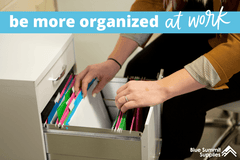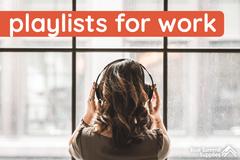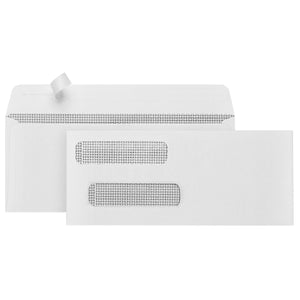![]() This article is part of a series from Blue Summit Supplies dedicated to getting you the information and resources your office needs surrounding COVID-19. It is critical that offices across our nation take swift action to protect their workers and prevent the spread of illness. The decisions we make have a direct impact on the health of those around us. Though it will be a challenge, changing our behaviors could save the lives of our friends, neighbors, and coworkers.
This article is part of a series from Blue Summit Supplies dedicated to getting you the information and resources your office needs surrounding COVID-19. It is critical that offices across our nation take swift action to protect their workers and prevent the spread of illness. The decisions we make have a direct impact on the health of those around us. Though it will be a challenge, changing our behaviors could save the lives of our friends, neighbors, and coworkers.
As businesses take drastic measures to curb the spread of COVID-19, many are transitioning their workers to temporarily work from home. Working from home is new to many workers, and the change of environment can yield a number of distractions. In this post, we’ll cover tips for working from home, including how to manage distractions from children, pets, and more.
If your business hasn’t made the move to remote work, read our article on Social Distancing at Work: What it Means and Proper Practices. It includes facts about social distancing and important steps you can take at work to protect yourself and those around you.
Why Social Distancing is So Important
Social distancing refers to an effort by individuals to reduce close contact with other people to limit the spread of disease.
It’s a behavior adjustment that can lower your risk of transmitting or being infected by any disease, particularly COVID-19, which is transmitted mainly from person-to-person. The virus is spread between people who are in close contact, within about 6 feet, through respiratory droplets that are produced when an infected person coughs or sneezes. These droplets can land on other people, or live on surfaces for up to 3 days.

For more information about medical treatment and the current spread of COVID-19, visit The World Health Organization or The Centers for Disease Control.
It can take up to two weeks before a person infected with COVID-19 notices their symptoms, which means avoiding contact with people is key to mitigating the spread of the virus. Avoiding people who appear sick is not enough to mitigate the spread of COVID-19, which is why many businesses are moving their workforce to remote home offices.
Working from home is new to many, and it presents a number of challenges for people who are used to an office work environment.
Working From Home With Children
Children are adapting to lifestyle changes as well. There’s a lot going on around them that they aren’t used to. Usually, when their parents or caregivers are home, it means they are not working—the adults have time to play and do fun activities like you might expect on weekends or vacation days.
Talk About What’s Going On
Ensure your children understand why you're working from home and that it means things at home will need to change, at least for a little while. Talk to them about the benefits. There’s a lot of good that will come from working from home. You will be closer, you won’t have to leave as early to commute to work, and you are helping keep your family and community safe through social distancing.
Establish Private Workspaces
You need to have your own space to work, especially if you’ll be home with children. If you don't have a home office already, establish an area of your home that will serve as your office for the time being. Ideally, this space will have a solid internet connection and a door that closes. Make sure your children know that this is your private space for working and what a closed door means.
Set Boundaries
Without setting specific boundaries, your time working at home will be treated like any other time you are at home, which will make it very difficult for you to get your work done. When are interruptions allowed? When are they not? What does it mean when you have headphones in? What constitutes an emergency? Set boundaries in your home around your workspace, working hours, and when you are unavailable.
Working From Home With Pets
Your furry friends will be thrilled to have you working at home all day with them. Their lives are about to change for the better, and you’ll likely be happy to have the cute and lovable company. But just like children, they aren’t going to have your undivided attention as they'd like.
Set Boundaries
If you have a pet that will interrupt your focus or one that might decide to join in on your office call, ensure you are working in an area they can’t access. Close your office door during times of deep focus and when you are taking calls. You won’t be able to explain why you need the extra space, but it is critical that you take space for yourself if you have a distracting pet—no matter how many puppy dog eyes they give you.
Schedule Bathroom Breaks
Maintain a regular bathroom schedule with your pets. Just because you are home doesn’t mean they can ask to go outside every hour. You may be happy to have the distraction, but for every small interruption, it will take you several minutes to get back on task. It takes an average of 23 minutes and 15 seconds to get back to a task after you are interrupted.
Choose designated times to take your dog outside. Ideally, coordinate their bathroom breaks with your breaks. A short walk around the block will give your brain the break you need, and being in nature can help relieve stress and anxiety, improve your mood, and increase feelings of happiness and wellbeing.
Working From Home Distractions
Plan Lunches in Advance
When you work from home, you are suddenly free to make whatever you want for lunch. Your kitchen is free and clear, and you never have to combat your coworkers for access to the microwave.
But be careful about lunches. It may seem like a good idea to cook yourself something a little more elaborate, but you’ll end up spending your whole lunch break making food and not actually taking your important break. When you add in making lunches for kids and anyone else who’s home with you, you aren’t getting the break you need.
Taking regular breaks is critical to maintaining focus and productivity throughout the day, so use your lunchtime wisely.
Prep your food the night before or in larger batches on the weekends. Have lunches prepared in advance for your children just like you would if they were going to school. For older children, you can get them involved in preparing simple meals for themselves so that they are not reliant on you during your lunch break.
Personal Calls
Yes, you’re home and now available to take whatever calls you’d like, but if you do, you won’t be able to maintain your productivity at home. Ensure your loved ones understand that just because you could be available at any time doesn’t mean you are available at any time. Have the people in your life adhere to your work schedule, and avoid answering your phone for personal reasons during work hours. You don’t need to get distracted by a call from your bank or to hear about the vacation you just won.
Phone Notifications
Our mobile phones are huge distractions. When you work from home, there’s no one to notice you just spent 20 minutes on Twitter. It might be tempting to keep your phone nearby, but you should avoid that temptation. Be strict with yourself and only look at your phone during designated breaks. And even then, you’d be much better served going for a walk or meditating during your break than spending it checking stressful news updates on your phone.
If you don’t use your mobile phone for work, keep it in another room entirely. If you don't see the notification, you won’t be interrupted by it.
If you do use your phone for work, manage your notifications so that you only see work updates. Set limitations on how long you allow yourself to spend on distracting apps such as social media, games, and news aggregates. Newer phone models track how much time you spend using your phone and in which applications. Screen Time on iPhones lets you know how much time you spend in certain applications, and offers tools to help you manage it. You can set daily limits for distracting applications to ensure you don’t get caught up scrolling through social media feeds without realizing it.
As remote work becomes the new norm for many businesses across the globe, we are going to need to adapt our habits to manage at-home distractions.
From all of us at Blue Summit Supplies, we hope that you take care of yourselves and those around you now and in the weeks to come. Remember that we are in this together as a global community. If your neighbor (or coworker) gets sick, there’s more of a chance you will get sick. Simple, yet critical precautions, such as social distancing, washing your hands thoroughly, not panic buying, and staying home if you feel sick will help ensure you and those around you remain healthy.

More from Blue Summit Supplies
💡 The Benefits of Work-Life Balance and How to Maintain it
💡 A Complete Guide to Home Filing: Cabinets, Categories, and More
Follow our office supplies blog for the latest office news, trends, strategies, and more.
If you have any questions or want to talk to someone about office supplies, send us an email or connect with us on Twitter, Facebook, or Instagram.










